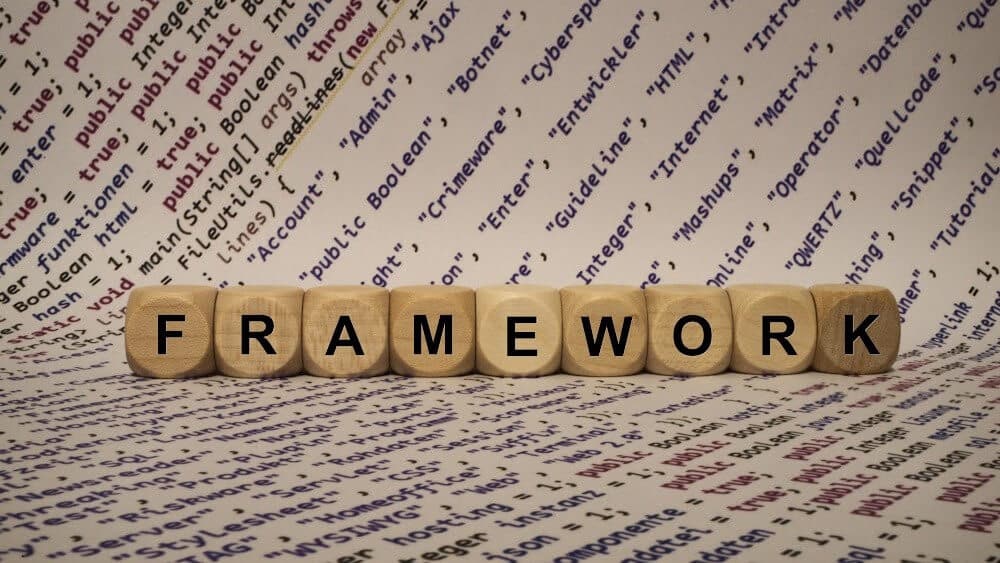Hi there! Welcome to yet another interesting article on Front-End Developer Interview Questions!
In this session, we’ll delve into what you need to do to prepare adequately for a Front-End Developer Interview.
Further, we’ll give you an outline of the interview process and walk you through the questions you can expect in the interview.
After reading this article, you’ll have in-depth knowledge of what to expect in a Front-End Developer Interview.
In a nutshell, we’ll talk about:
- Front-End Developer interview process
- How to approach Front-End Developer interview questions
- The questions you should expect
- Frequently Asked Questions and More
Without further ado, let’s get started!
Front End Developer Interview Process

To secure a job as a Front-End Web Developer, aspiring Developers must pass an interview.
Different organizations have different ways of conducting Front-End Developer Interviews.

Most companies follow either of these two processes:
The Standard Interview
The standard interview is straightforward.
It’s the interview model mostly practiced across different fields.
Usually, the first stage of the interview involves a phone interview between the Applicant and the Hiring Manager or the Recruiter.
If the applicant passes this stage, they proceed to the next one: a phone call with an Engineer or a Web Development team member.
The last interview stage is in-person, consisting of four to five-panel members interviewing the Applicant.
Take Home Interview
Like the standard interview, a home interview starts with a phone interview with the Recruiter or the Hiring Manager.
If the Applicant impresses the Interviewer in the first stage, they proceed to the next stage.
In stage two, they’ll be given a takeaway assignment they are supposed to complete at home.
Applicants may be given a specific time frame to complete the assignment.
The last stage is an in-person interview, mainly based on the submitted take-home assignment.
Although a take-home interview requires the Applicant to spend more time working on the project, it pays off, as the in-person interview is mostly based on what they’ve already done.
How to Approach Front End Developer Interview Questions

Interviews make people anxious, but it doesn’t have to if you are well-prepared.
Preparation is the key to acing the interview questions and, hopefully, securing a job.
So, what should you do when it comes to a Front-End Developer Interview to ensure you are up for the task?
First things first, do your research about the recruiting organization.
Who are they?
What’s their mission?
You should also do research online on the potential Front-End Developer Interview Questions.
Scan the answers too, to have a rough idea of the expected responses.
But DO NOT cram them.
Personalize your answers, depending on the questions asked.
You can even give examples from your own experience.
You can also prepare flashcards for confusing acronyms or buzzwords like the CSS box model, HTTP, semantic HTML, etc.
Even as you learn about these acronyms, bear in mind that memorizing the definitions will not do you any good.
Let what you’ve learned be a guideline.
Further, you can polish your coding skills by developing a simple website on your own.
This is important because you’ll be required to solve practical questions during the interview.
Additionally, ensure you are conversant with every tool or framework you’ve listed on your resume or personal website.

As you research the interview questions, make sure you also dig into questions revolving around those frameworks and tools.
For coding questions, let the Interviewer finish the questions first before you start coding.
Understand the question and ask for clarification in case of a misunderstanding.
Since some coding questions are wrapped in stories, you can break them down into small chunks to better understand the scope.
Remember, every question is to test whether you are qualified.
So, take your time.
When it’s time for you to ask questions, don’t be afraid.
Ask a question that will add value to your qualification and show that you are genuinely concerned about the organization or the position you applied for.
Do not ramble.
Your questions should be precise and to the point.
Last but not least, ensure you have enough sleep the night before the interview.
When you are well-rested, you’ll be more confident and alert.
Next, keep time on the interview date.
It will be best to be there earlier.
Finally, calm down.
There are no perfect answers.
So, don’t try too hard to impress.
Just give your best.
The Questions You Should Expect

A Web Developer interview takes around 45 minutes to complete.
Usually, the interview session is broken into five sections.
In the first two minutes, the Interviewers will introduce themselves.
They’ll then give you around five minutes to talk about yourself and your work history.
Of course, this will be in the form of leading questions.
The interview will get more challenging as the panel delves into technical skills questions.
Usually, this part runs for seven minutes or more.
Next, be prepared for a coding challenge that will require your hands-on skills.
This takes around 25 minutes.
And lastly, you’ll have five minutes to ask any questions that you may have.
Hard Skills Questions
When it comes to technical skills, you should be knowledgeable in frameworks/libraries, for example, Angular, React, or Vue.js.
You must also be familiar with JavaScript, HTML5, and CSS.
Apart from coding languages, you must understand how web browsers work.
Things like coding in the browser should be at the tip of your fingers.
Further, interviews will test you on APIs, working with GIT reports, and so on.
So, you must be good at the technical skills required in front-end development.
Here are the categories of questions that Interviewers may ask to test your hard skills.
JavaScript Interview Questions
As a Front-End Developer, you are expected to be familiar with JavaScript.
You must also know how it behaves and work.

Here are some questions you can expect from this programming language:
Briefly Mention the Data Types in JavaScript
JavaScript data types include symbols, objects, strings, numbers, undefined, null, and boolean.
The data types provide functionality that allows Web Developers to design web applications.
What does Functional Programming mean in JavaScript?
Functional programming refers to pure function.
That means you must be proficient in filtering, reducing, and mapping.
Additionally, knowledge of immutability will be helpful.
What Comes to Mind When You Hear Cookies in JavaScript?
Cookies help servers remember users’ online habits, preferences, and activities.
When a web page opens in a browser, the connection immediately shuts down.
Everything about the users is erased too.
So, cookies store users’ information for later use.
HTML Interview Questions
Hypertext Markup Language (HTML) is integral in front-end web development.
So, expect some questions about its functionality.
Here is what you can expect from HTML in Front-End Interview Questions:
What is an Attribute in HTML?
These are properties that users add to HTML tags to change how they are displayed.
You can go ahead and give examples.
What do You Understand by Semantic HTML?
Semantic HTML gives meaning to a page by using the HTML markup that emphasizes the content semantics rather than presentation only.
Since semantic HTML is more comprehensive, it defines the different sections of web pages better.
How do You Display a Table on an HTML Webpage?
In this question, you will be required to explain the HTML table tags.
CSS Interview Questions
Cascading Style Sheets (CSS) is a style language that describes the layout, animation, color, and fonts on a web page written in XML or HTML.
CSS goes hand in hand with HTML and JavaScript.
The questions in this section test how well you are acquainted with CSS
Here is an overview:
What is CSS Float, and How is it Used
CSS float directs the browser to put an element either to the left or right side of a container.
Go further to explain how you use it.
Your explanation should be concrete.
Exude confidence.
Float ensures the web pages resize to match the users’ resolutions.
How Can You Incorporate CSS Styling into HTML?
There are three ways to incorporate CSS styling into HTML.
The first one is an internal style sheet, which is applied when an HTML document has a unique style and several elements.
The external style sheet is ideal when you want to style several elements or HTML pages.
Lastly, inline CSS is for when you need to style one element, or you basically need to style a few things.
What are the Different Types of CSS Selectors?
The different types of CSS Selectors include:
- Universal selector
- Element type selector
- ID selector
- Class selector
- Descendent combinator
- General sibling combinator
Framework/Libraries Interview Questions
These questions will test your knowledge of front-end development frameworks and libraries.
Some organizations may require applicants to create a mobile app, website, or web app using a specific framework or library.
The assignment can be done in their offices, or it can be a home assignment.
Suppose it’s done in the office, you should carry your laptop.

It will make it easier because you’ll be working on a familiar operating system and IDE.
Ensure your code is clean to make this practical part of the interview a success.
Ensure you use the best practice for the particular framework you’ve been given.
Apart from the practical assignment, there may be a few questions on frameworks and libraries that you may encounter.
Name the Popular Front-end Framework
Foremost, ensure you are up-to-date with trends.
The popular front-end framework includes Angular, React, Vue and Svelte.
Which Options do You Have to Test JavaScript Code?
Jest is particularly popular when it comes to testing JavaScript code.
Puppeteer and Selenium are also often used by web development teams.
What is JSX?
JSX is part of the JavaScript syntax extension.
In React, it refers to how the user interface should look.
With JSX, you don’t need to use JS DOM structure because it makes the code easy to understand and debug.
Git Interview Questions
Git is an open-source version control system that Developers use to track changes in the source code.
Git allows several Web Developers to collaborate in developing the source code when developing software.
Define Version Control System (VCS)?
VCS is a program that records changes made to a file or data.
With the records, programmers can change the file or data to its original format in case something goes wrong.
Version control systems make it possible for multiple developers to work on the most up-to-date version of the project
What is the difference between a Distributed and Centralized Version Control System?
In a distributed version control, all the Developers have the code version copied to their computers.
With this version, Developers can work offline.
The good thing about it is that Developers can’t lose data even if the server crashes.
On the other hand, centralized version control uses a central server to store all the data.
If the server crashes, all the information is lost.
Explain What Sets Git Push and Git Pull Apart?
Git Push transfers the local repository content to a remote repository.
On the flip side, Git Pull downloads content from a remote repository and merges that content into the local repository.
This update ensures the information in the local repository is the same as in the remote repository.
Algorithm Interview Questions
Front-end Interviews don’t focus intensively on the algorithm as software engineering interviews.
But all in all, you must have an overview of the basics.
Learn about arrays.

How do you pop, push, shift and unshift?
Delve into objects and the lesser used data structures such as Stacks, Linked Lists, Trees, and Queues.
Also, refresh your knowledge on sorting and time and space complexity.
Behavioral Questions
Behavioral Interview Questions test how you react to different situations.
These questions are intended to determine how you conduct yourself as a Front-End Developer and how you react to stress.
It further evaluates your skill level.
Here are the questions you can expect in this section:
When You Reflect on the Best Web Application or Website you Completed, What Did You do to Ensure it was Accessible and User-friendly?
As a Front-End Developer, you must always have the end-user in mind when developing a website or an app.
So, the Interviewers want to test whether you take user experience seriously.
Answer this question by explaining how you conducted user testing on different devices to ensure it was seamless across devices.
Again, highlight the best practices you’ve used in your projects to ensure they are intuitive and accessible to users.
Have You ever Experienced Resistance When Working on a Project?
At the core of a web development career is a collaboration with stakeholders to ensure the end products meet the users’ needs.
And so, when there is resistance, the best Web Developers should be able to make a case for why their development choice is the best.
In this question, highlight your team player skills.
A good response will be about how you proposed a compromise that both parties were happy with or how you persuaded the stakeholders to do it your way.
Have You Been on a Project that has Many Stakeholders? How did You Complete the Project?
As is the norm, web development is not a one-person show.
Usually, Front-End Developers work in teams.
The panelists want to find out how you perceive collaboration.
So, explain the processes you took and how you worked with team members to complete the project.
Soft Skills Questions
Soft skills are the personal attributes that allow you to thrive in the workplace.
Soft skills interview questions are diverse.
What you’ll be asked about depends on the skills the panel needs their employees to have.
Here is what you can expect:
Which Technology are You most Interested in Learning About this Year?
Here the Hiring Manager is testing your willingness to learn and ambition in the industry.
Web development technology is constantly evolving.

It’s only right that Developers are ahead of the curve by being up-to-date with the developments.
Therefore, a great answer to this question should focus on attending forums and bootcamps on web technology.
What Were the Last Questions you Attempted on Stack Overflow?
Stack Overflow is an amazing community for Front-End Developers.
They get answers and advice from the tech community on the platform.
Here the panelists want to know if you are part of a community.
They’ll also want to gauge your level of engagement.
Further, it shows whether you love sharing your experience with other tech professionals.
Your response will tell them your level of expertise.
They’ll know whether you have what it takes to tackle complex challenges.
And that’s it!
Those are the main categories of interview questions and potential answers.
Yours now is to do more research and review many interview questions and answers to have a broader overview of the potential questions you may get.
Conclusion

More often than not, interviews cause anxiety.
And the only way to curb the anxiety is to prepare adequately, from the organization to the commonly asked questions.
Ensure you’ve polished the tools and frameworks you’ve highlighted on your portfolio website.
Web design knowledge alone won’t be enough.
You must also be familiar with the basics of SEO.
Apart from that, you must ensure you communicate fluently and clearly during the interview.
Otherwise, all the preparation will be in vain.
That said, we wish you nothing but the best in securing your next front-end development job.
FAQs

How do I prepare for a Front-End Developer Interview?
There are several ways you can prepare for a Front-End Developer Interview:
– Research the interviewing organization
– Comb the internet for interview questions in front-end development
– Develop and optimize a website to polish your coding skills
– Prepare the questions you’ll ask the panelists
– Have enough sleep and show up early
What are the three core technical skills required by a Front-End Developer?
Here is an outline of the top technical skills you need to become a Front-End Developer:
– HTML and CSS: These two are critical for front-end development
– JavaScript is useful for developing responsive web designs
– Frameworks and libraries: Popular libraries like JQuery and frameworks like Angular JS are crucial.
What skills do Front-End Developers need?
Here is a list of soft skills for Front-End Developers:
– Communication skills come in handy as they communicate with team members
– Problem-solving skills are crucial to solving technical problems when offering web services
– Teamwork is equally important as web development requires collaboration
What is the difference between Front-end and back-end Developers?
Front-End Developers work on the client side of the website:
– This is the side that users interact with.
– They should be conversant with HTML, CSS, and JavaScript.
Back-End Developers work on the server-side of the web:
– They should be familiar with Python, PHP, and Ruby.
What is the most challenging part of Front-end Development?
Browser compatibility: A website may be running well, but when tested on another operating system, it turns out not compatible, which calls for extra work.
Keeping up with the latest technology: Tech keeps evolving, so it’s a never-ending learning curve.
What are the different types of Front-End Developer Interview Questions?
Hard skills questions, which mostly test technical skills.
This includes knowledge of programming languages, frameworks/libraries, and version control.
Behavioral questions are intended to determine the Front-End Developer’s personality.
Soft skills questions are geared to check the Developers’ attitudes towards their profession and personal attributes.
What is your favorite Front-end Development tool?
Our favorite Front-End Developer tools include:
GitHub: The worst nightmare for every Developer is screwing up.
GitHub tracks the changes you’ve made in the project.
You can also go back to the previous version of the project.
Sass is a CSS preprocessor that makes coding simple and efficient.









